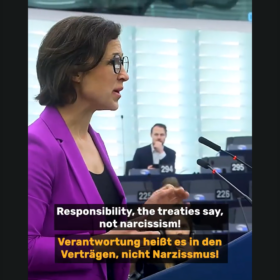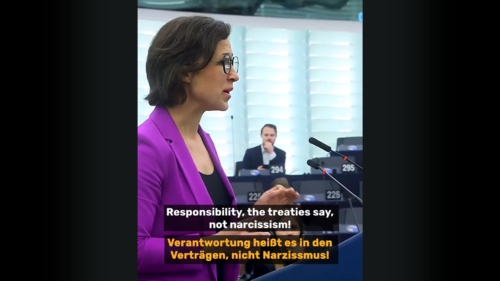Today, the European Commission published its Gulf Strategy, outlining its strategic approach to the region for the years to come. Here’s my comment as Chair of the European Parliament’s Delegation to the Arabian Peninsula:
In short: “A closer cooperation between the EU and the Arab Gulf countries, in particular the Gulf Cooperation Council, bears great potential, especially in the field of tackling climate change and promoting renewable energy. This should not make us shy away from being outspoken on severe issues of human rights and regional security. A good partnership benefits from both – joint projects and honest debates. The Communication of the Commission is a first step in that direction and I hope it sparks the necessary debates in Brussels and the member states’ capitals on how we want to engage in the future with this region in our close neighbourhood.”
In more detail: “The Gulf countries want to work closer with the EU, and the EU can benefit from pursuing such cooperation, especially with regards to its ambitions to reduce greenhouse gas emissions and producing clean energy. I appreciate that the European Commission now takes steps to put our relations with the region on a new footing and I hope that the Council will follow its ambitious approach. An entire chapter of the new communication is dedicated to inter-institutional relations between the EU and the Gulf Cooperation Council. Deepening these relations will help foster multilateralism and regional integration, and so does the consolidation of diplomatic contacts through new EU embassies in Qatar and Oman.
The EU must scale up its own production of renewable energy, but we will also need partners to become fully CO2 neutral. The Gulf countries are amongst the most advanced in terms of renewable energy technologies. Further, they have the financial resources to expand quickly in this area and they are predestined for producing energy out of sun. A cooperation with the Gulf countries in this aspect is a win-win solution: Both partners can reinforce each other’s efforts in meeting their Paris climate targets, and push for more ambitious climate action plans internationally. The EU and the GCC can join hands in research, production and trade of renewable energies. This reduces one-sided dependencies in energy supply in Europe and provides Gulf countries with an opportunity to further diversify their energy economy, reducing the exploration of fossil fuels.
To achieve the necessary economies of scale, moving from the current patchwork of bilateral deals towards a structured EU-GCC cooperation is key. The proposal of the European Commission is a first step in this direction.
A closer cooperation in the area of energy, however, should not keep us from being outspoken on questions of regional security and human rights. The Gulf countries are no democracies, civil society is nearly non-existent, human rights defenders continue to face prison sentences and travel bans and the death penalty are still in place. The communication of the Commission is conspicuously silent on this! Most Gulf countries now have human rights action plans and human rights dialogues with the EU. These need to be employed to collaborate on these issues, and exert pressure where needed. It is good that the Communication addresses these aspects, albeit timidly. We need a clearer language in this respect, also to support those who advocate for a human rights based agenda inside the Gulf countries and their administration. The strategy also remains very vague in its language on the military involvement of some Gulf countries in the region, which frequently undermines the EU’s standing and goals in our Southern Neighborhood. It also does not sufficiently address the Gulf countries’ reluctance to support the EU’s sanctions against Russia. In this area, discussions in the Council must lead to a more honest and outspoken debate. A good partnership can only grow from such sincere debates.”












